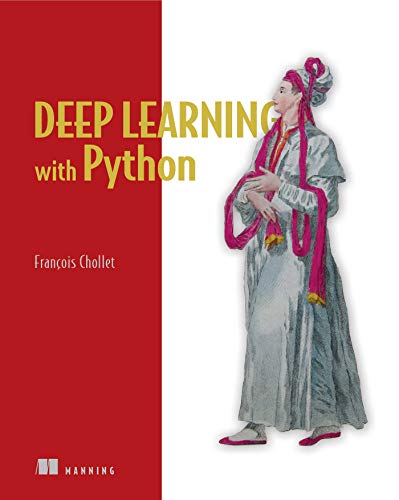10 Python Books That Separate Experts from Amateurs
Discover Python Books recommended by Hilary Mason, Kirk Borne, and Charlie Miller for practical skills and expert knowledge.


What if the key to mastering Python was hidden in just the right books? Python’s popularity has surged, powering everything from web development to artificial intelligence. Yet, with so many resources out there, choosing the right book can feel overwhelming. Why does Python continue to dominate programming conversations worldwide? Because it’s versatile and accessible, but only if you know where to start.
Experts like Hilary Mason, a data scientist known for her work at Accel, and Kirk Borne, Principal Data Scientist at Booz Allen Hamilton, have spent years navigating Python’s vast landscape. Hilary praises "Automate the Boring Stuff with Python" for turning tedious tasks into programming victories, while Kirk champions "Python Machine Learning" for bridging theory and practical data science. Their endorsements are grounded not just in expertise but in real-world application.
These curated selections cover everything from beginner-friendly introductions to deep dives into machine learning and security. While these expert-curated books provide proven frameworks, readers seeking content tailored to their specific experience level, profession, or goals might consider creating a personalized Python book that builds on these insights and fits your unique journey.
Recommended by Charlie Miller
Security researcher
“Black Hat Python is a fun read written by experts with years of experience who are willing to share the secrets they have learned along the way. While it might not immediately turn you into a super stunt hacker like me, it will certainly get you started down the correct path.”
by Justin Seitz, Tim Arnold··You?
by Justin Seitz, Tim Arnold··You?
When Justin Seitz discovered how Python could be wielded for offensive security, he crafted this guide to empower hackers and penetration testers with real coding skills. You’ll learn to build tools for network sniffing, credential theft, privilege escalation, and stealthy trojans, all updated for Python 3.x. The book doesn’t just skim the surface; it dives into advanced topics like memory forensics with the Volatility Framework and automation through Windows COM. If you're aiming to deepen your hacking toolkit with practical Python applications, this book offers targeted skills, though it assumes some prior programming familiarity.
Recommended by Hilary Mason
Co-Founder Hidden Door Co., Data Scientist in Residence at Accel
“The best part of programming is the triumph of seeing the machine do something useful. Automate the Boring Stuff with Python frames all of programming as these small triumphs; it makes the boring fun.”
by Al Sweigart··You?
Unlike most Python books that dive straight into complex programming concepts, Al Sweigart’s approach here is to show you how to make your computer do tedious tasks automatically, even if you’re new to coding. You’ll learn practical skills like automating file renaming, web scraping, filling forms, and manipulating spreadsheets through clear examples and updated projects, including a new chapter on input validation and Gmail automation. This hands-on style means you’re not just reading theory but actually building tools that save you time. If you want to start programming with immediate, tangible results — especially to boost productivity — this book suits you well, though experienced developers looking for deep Python internals might want to look elsewhere.
This personalized book provides a tailored framework for building practical Python projects that enhance coding skills through hands-on experience. It focuses on creating project-based learning paths that adjust to your proficiency level, industry, and goals, enabling you to apply Python concepts to real-world scenarios effectively. The book covers methodologies for selecting, designing, and implementing projects that reinforce programming fundamentals and advanced techniques alike. By cutting through generic advice, it fits your specific context to promote skill development through practical application. The tailored approach ensures that each project contributes directly to your coding competency and problem-solving abilities in Python.
Recommended by Mike Bayer
Creator of SQLAlchemy
“Now that Python 3 has finally become the standard version of Python, it’s already gone through eight minor releases and a lot of new features have been added throughout. Brett Slatkin returns with a second edition of Effective Python with a huge new list of Python idioms and straightforward recommendations, catching up with everything that’s introduced in version 3 all the way through 3.8 that we’ll all want to use as we finally leave Python 2 behind. Early sections lay out an enormous list of tips regarding new Python 3 syntaxes and concepts like string and byte objects, f-strings, assignment expressions (and their special nickname you might not know), and catch-all unpacking of tuples. Later sections take on bigger subjects, all of which are packed with things I either didn’t know or which I’m always trying to teach to others, including ‘Metaclasses and Attributes’ (good advice includes ‘Prefer Class Decorators over Metaclasses’ and also introduces a new magic method ‘__init_subclass__()’ I wasn’t familiar with), ‘Concurrency’ (favorite advice: ‘Use Threads for Blocking I/O, but not Parallelism,’ but it also covers asyncio and coroutines correctly) and ‘Robustness and Performance’ (advice given: ‘Profile before Optimizing’). It’s a joy to go through each section as everything I read is terrific best practice information smartly stated, and I’m considering quoting from this book in the future as it has such great advice all throughout. This is the definite winner for the ‘if you only read one Python book this year...’ contest.”
by Brett Slatkin··You?
by Brett Slatkin··You?
When Brett Slatkin first drew from his extensive experience managing Google's server infrastructure, he crafted a book that goes beyond basic Python tutorials to reveal the subtleties of writing truly Pythonic code. You’ll find 90 distinct insights covering everything from comprehensions and generator functions to concurrency and metaclasses, explained with clear examples like the new magic method __init_subclass__(). This book suits programmers who want to deepen their mastery of Python 3’s evolving features and write code that’s not only functional but also elegant and maintainable. If you’re comfortable with Python basics and ready to refine your approach, this book provides the nuanced understanding you need.
Recommended by Pratham Prasoon
Self-taught programmer at CelestiaOrg, ML enthusiast
“Last but not least, we have Machine Learning with PyTorch and Scikit-Learn. This book was a lifesaver during my research internship! You'll learn about deep and classical machine learning with great to-the-point theory explanations. Suitable for slightly more advanced readers.” (from X)
by Sebastian Raschka, Yuxi (Hayden) Liu, Vahid Mirjalili··You?
by Sebastian Raschka, Yuxi (Hayden) Liu, Vahid Mirjalili··You?
When Sebastian Raschka, Yuxi (Hayden) Liu, and Vahid Mirjalili developed this guide, they aimed to demystify machine learning and deep learning using Python's PyTorch and scikit-learn libraries. You’ll gain a strong foundation in essential algorithms, from classifiers to neural networks, with detailed chapters on data preprocessing, ensemble learning, and even cutting-edge topics like graph neural networks and transformers. The book balances theory and practice, showing you not just how to run code but why models behave as they do—perfect if you already know Python and want to deepen your machine learning skills. If you seek a resource that bridges classical methods with modern deep learning frameworks, this book fits that niche well.
Recommended by Kirk Borne
Principal Data Scientist, Executive Advisor at Booz Allen Hamilton
“A brilliantly approachable introduction to machine learning with Python. Raschka and Mirjalili break difficult concepts down into language the layperson can easily understand while placing these examples within real-world contexts. A worthy addition to your machine learning library!”
by Sebastian Raschka, Vahid Mirjalili··You?
by Sebastian Raschka, Vahid Mirjalili··You?
Unlike most Python books that focus narrowly on syntax or basic programming, Sebastian Raschka and Vahid Mirjalili dive deeply into machine learning and deep learning frameworks with clarity and precision. Drawing from Raschka's academic research and Mirjalili's applied expertise, the book guides you through using scikit-learn and TensorFlow 2 to build models from scratch, including chapters on GANs, reinforcement learning, and sentiment analysis. You’ll learn not only how to implement algorithms but why they work, gaining insight into model evaluation and hyperparameter tuning. This book suits Python developers aiming to master machine learning fundamentals and advanced techniques, while those seeking only introductory Python might find it dense.
by TailoredRead AI·
by TailoredRead AI·
This AI-curated book on Python security toolkit development provides a tailored framework for building ethical hacking tools using Python. It focuses on methodologies for vulnerability assessment, penetration testing automation, and exploit development, all adjusted to individual proficiency and industry context. The book covers scripting techniques for network scanning, packet analysis, and security auditing, presenting strategies that fit your specific cybersecurity environment and goals. By cutting through generic advice, it offers a personalized approach that aligns with your technical background and ethical hacking aspirations, ensuring practical implementation. It thoroughly examines Python libraries and frameworks essential for cybersecurity tool creation, emphasizing hands-on applications.
Recommended by Kirk Borne
Principal Data Scientist at Booz Allen
“✨🎉🌟Must see this >> Free Python DataScience Coding book series for DataScientists ...via DataScienceCtrl Go to ——————— #abdsc #BigData #MachineLearning #AI #DeepLearning #BeDataBrilliant #DataLiteracy” (from X)
by Jake VanderPlas··You?
by Jake VanderPlas··You?
Drawing from his role as a software engineer at Google Research and his deep involvement with key Python packages like Scikit-Learn and AstroPy, Jake VanderPlas offers a detailed guide that brings together essential Python tools for data science in one volume. You get a hands-on understanding of libraries such as NumPy for array manipulation, pandas for data frames, Matplotlib for visualizations, and Scikit-Learn for machine learning algorithms, all explained with practical examples like using DataFrames for labeled data or building models with Scikit-Learn. This book suits anyone comfortable with Python who wants to solve everyday data challenges, whether cleaning data or crafting statistical models—it’s a solid reference rather than a beginner’s tutorial.
Recommended by Pratham Prasoon
Self-taught programmer, blockchain and ML enthusiast
“The Deep Learning with Python book is more advanced than the previous books. It explains the theory and best practices of deep learning with TensorFlow intuitively and practically. You'll learn about natural language processing, generative models, and more.” (from X)
by Francois Chollet··You?
by Francois Chollet··You?
When François Chollet developed Keras, he aimed to simplify deep learning for Python users, and this second edition of his book reflects that mission by blending foundational theory with hands-on techniques. You’ll explore how to build neural networks from scratch, apply deep learning to image and text data, and even generate new content through neural style transfer—all explained with clear code examples and color illustrations. The book suits you if you have intermediate Python skills but are new to machine learning frameworks like TensorFlow and Keras. Chapters like "Advanced deep learning for computer vision" and "Generative deep learning" deliver concrete skills that bridge theory and practice without overwhelming jargon.
by Eric Matthes··You?
When Eric Matthes first realized how many beginners struggle to find a clear, practical Python introduction, he wrote this book to bridge that gap. You’ll learn foundational programming concepts like variables, loops, and classes, then apply them by building projects such as a Space Invaders–style game and interactive data visualizations, making abstract ideas concrete. Matthes’s background as a high school science and math teacher shines through in the approachable explanations and hands-on exercises, ideal if you want to move quickly from theory to real coding. This book suits absolute beginners eager to write functional Python programs without getting overwhelmed by jargon or unnecessary complexity.
by Francois Chollet··You?
by Francois Chollet··You?
When François Chollet first realized how transformative deep learning could be, he set out to create a resource that demystifies this complex field using Python and his own Keras library. This book guides you through foundational concepts like neural networks and machine learning fundamentals, advancing into practical applications such as computer vision and natural language processing. You’ll engage with real examples—from image classification to text generation—that build your hands-on skills and deepen your understanding. It’s ideal if you have intermediate Python knowledge and want a clear path into deep learning without being overwhelmed by theory or jargon.
Recommended by Thorsten Heller
CEO at GreenbirdIT, Energy Data Expert
“The Best book to start your DataScience journey - Towards DataScience by Ben the Coder” (from X)
What if everything you knew about data science was wrong? Joel Grus argues that truly mastering data science requires more than just knowing libraries and tools—you need to understand the underlying principles. Drawing from his experience as a research engineer at the Allen Institute for AI and a former Google software engineer, Grus walks you through core concepts like linear algebra, statistics, and probability, grounding them in Python implementations. You’ll build foundational skills in machine learning algorithms, natural language processing, and data manipulation, with chapters dedicated to decision trees, neural networks, and recommender systems. This book suits those with some programming background aiming to grasp the math behind data science, rather than just applying pre-built packages.
Get Your Personal Python Strategy in 10 Minutes ✨
Stop following generic Python advice. Get targeted strategies that fit your goals and skill level today.
Join 15,000+ Python enthusiasts who've personalized their approach
Conclusion
The ten books featured here reveal distinct threads in Python mastery: automation for efficiency, deep learning for AI, security for ethical hacking, and data science for informed decisions. If you’re just starting, "Python Crash Course" offers a hands-on path to foundational skills. For those eager to dive into machine learning, combining "Python Machine Learning" with "Machine Learning with PyTorch and Scikit-Learn" accelerates your expertise.
Facing specific challenges like automating repetitive workflows? "Automate the Boring Stuff with Python" will transform your approach. Curious about writing more elegant, maintainable code? "Effective Python" sharpens your skills with actionable tips. Once you've absorbed these expert insights, create a personalized Python book to bridge the gap between general principles and your specific situation.
Whether your goal is to build AI applications, automate tasks, or enhance security knowledge, these books provide trustworthy guidance. Dive in with confidence, and let Python open new doors in your programming journey.
Frequently Asked Questions
I'm overwhelmed by choice – which Python book should I start with?
Start with "Python Crash Course, 3rd Edition" if you're new to coding. It offers clear, project-based learning that helps you build confidence quickly.
Are these books too advanced for someone new to Python?
Not at all. Books like "Automate the Boring Stuff with Python" and "Python Crash Course" are designed for beginners, while others cater to intermediate and advanced users.
What's the best order to read these Python books?
Begin with fundamentals in "Python Crash Course," then explore automation or data science depending on your interest. Advanced topics like deep learning come later.
Do these books assume I already have experience in Python?
Some do, such as "Effective Python" and "Deep Learning with Python, Second Edition." Beginners should start with entry-level titles before tackling these.
Which book gives the most actionable advice I can use right away?
"Automate the Boring Stuff with Python" is packed with practical projects you can apply immediately to save time and increase productivity.
How can I get Python learning content tailored to my specific needs?
While expert books provide solid foundations, personalized books can focus on your goals and skill level. Try creating a personalized Python book for targeted learning that complements these recommendations.
📚 Love this book list?
Help fellow book lovers discover great books, share this curated list with others!
Related Articles You May Like
Explore more curated book recommendations









